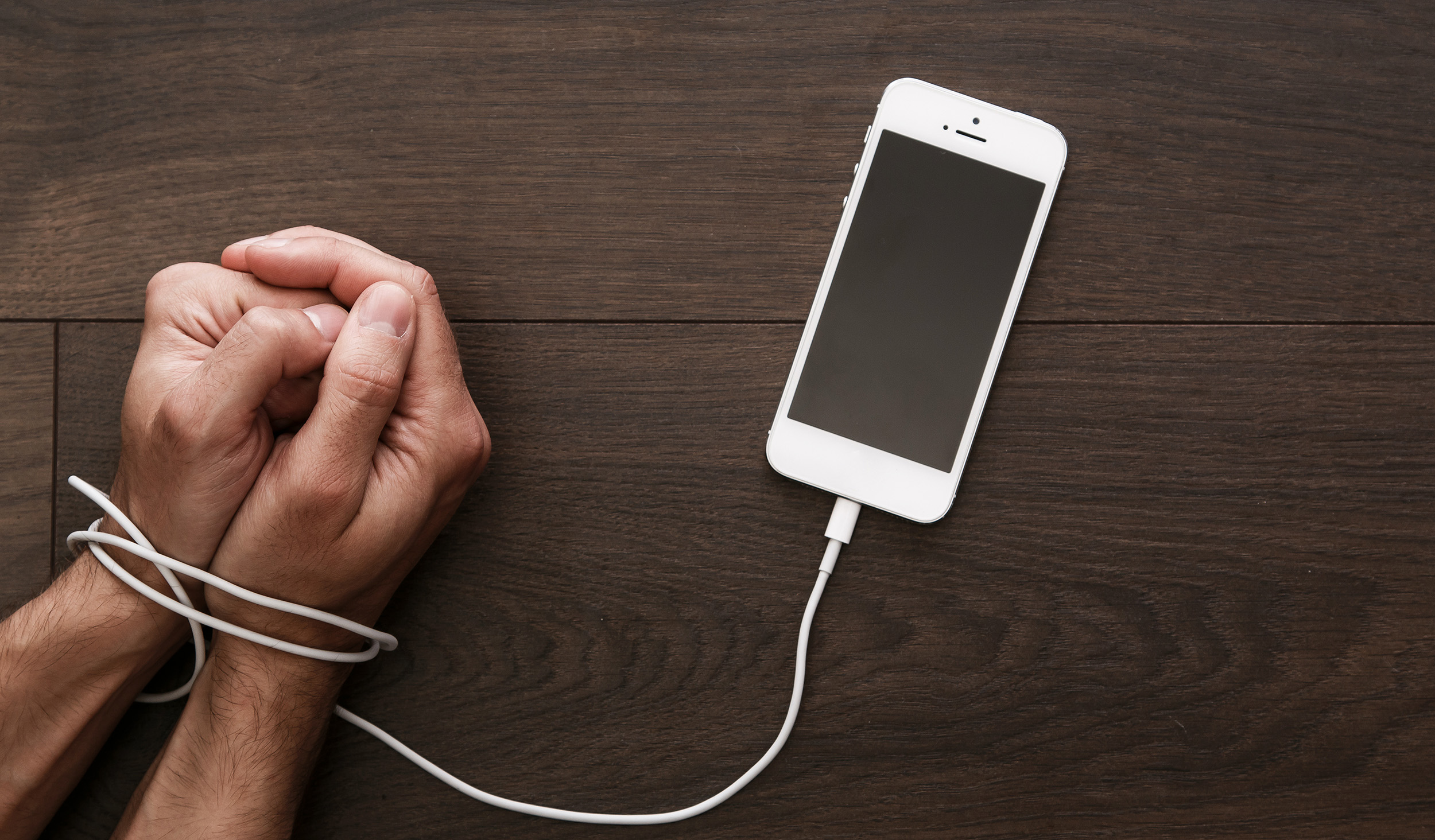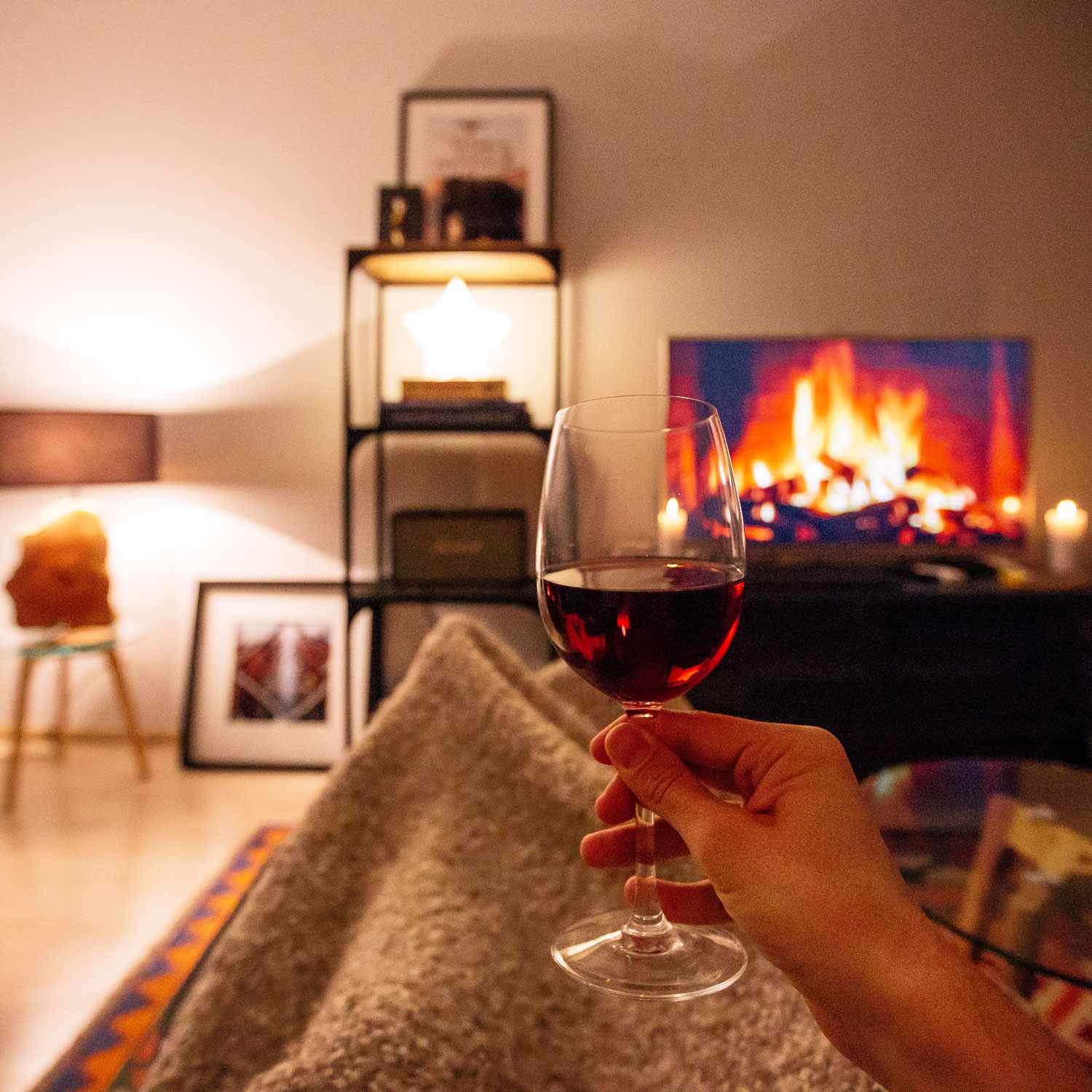
Having a great night’s sleep is important for all ages because it can affect our mood throughout the day. We all know the phrase, “Don’t talk to me until I have my coffee.” As grown adults, we cannot function without our daily dose of caffeine to get us started for the day. However, it can grow into an addiction. The lack of sleep combined with large amounts of coffee can lead to drowsiness and irritability. Also, when you’re settling into your new home/rental, your mind and body must get used to a new environment. Moving into a new place can cause sleep to decrease because your body isn’t used to the surroundings. In addition, you might develop bad habits that can make it difficult to fall asleep faster. Here are some tips that you might consider putting into your daily night routine:
1. Wind Down and Disconnect

We are all obsessed with social media and our cell phones. As the sun goes down, we must know when to unplug. The distraction of endless scrolling through apps like Facebook, Twitter, Instagram, YouTube, and especially TikTok keeps us engaged. Our perception of time completely changes whenever our eyes focus on a screen of entertainment. Your phone is harmless, but the blue light from the screen can lower your melatonin.
“Americans spend an average of 7 hours a day on electronic devices. That’s a lot of time staring at blue light. Worse yet, nine out of 10 Americans admit to reaching for an electronic device at least several nights each week shortly before bedtime. That could be an invitation for insomnia” (WebMD).
Melatonin is a natural hormone in your brain that releases its gland whenever it’s nighttime. This means the less melatonin flowing, the less sleep you’ll get tonight.
It’s a blessing to have technology in our lives, but sometimes, we need to disconnect from the internet. We need to focus on ourselves and the real world around us. This doesn’t include just cellphones. Other electronics like computer screens, televisions, and tablets have blue light in them. To yourself prepare for bed, disconnect from your devices for around an hour or two. You can do other activities like reading a book, meditating, yoga, taking a bath, drinking tea, or spending quality time with pets or children. If you cannot allow yourself to disconnect, then you can wear blue light protect glasses. Also, you can dim your phone’s brightness and turn on nighttime mode. Bedtime is a time to relax and unwind yourself. If you cut back your usage on your electronics, you will see a difference.
2. Make the Bedroom a Tomb

We should be worshipped like pharaohs as we accept the darkness within our tombs. The darkness falls and we must embrace the blackness of night. Not a single sun ray should distract us as we unwind and sleep the night away. The bedroom is a sacred place of quietness and darkness. As soon as the sun rises, we are introduced to a new day filled with determination and gratitude. Unfortunately, that doesn’t happen with everyone, considering you are reading this blog trying to find a solution. Whenever you disconnect, turn off the lights and embrace the darkness around you. Let your eyes rest from the brightness of the light. By keeping your room as dark as possible, you will be less prone to wake up before your alarm.
Another trick you can do is buy blackout curtains. Even though it’s nighttime, blocking any source of light is necessary. The blackout curtains are beneficial for nighttime workers. A total blackout will help keep the morning sun away from the windows and let the workers be sound asleep without any interruptions. Leaving the windows open without curtains is like allowing any intruder to confiscate your most valuable treasure.
3. Your Bedroom Should Be Your Bedroom 
For us, multitasking is the devil. No matter how hard we try, we cannot achieve the precision of doing two things at once. Although we practice this skill, we shouldn’t overwhelm ourselves by adding more tasks. Just like us taking multiple tasks once, we shouldn’t let our bedroom do the same. There is a reason why it’s called a bedroom. It’s a place where you settle down for the night and sleep. We shouldn’t let it be a place of stress or entertainment. Your bedroom is NOT an office, living room, kitchen, dining room, gaming area, or workstation. Let the bedroom have one common goal: sleep.
You might not believe it, but the bedroom setup is another key element. How are you decorating your bedroom? How is the furniture placement? Is your mattress and pillow comfortable? Is your bedroom clean? The environment should be a comfortable area where you can unwind and get away from the outside world.
4. Coffee Intake 
At the end of the day, we should be finished with our daily meals. We drank our morning coffee, ate our three meals, and perhaps had an alcoholic beverage or a dessert. However, your sleep quality is determined by the amount of food/drink consumption and what you eat/drink before bed.
For example, if you drink coffee at night, the caffeine in your system will start to take its effect. You will start to feel alert and overly focused. This is why coffee is meant for the morning and not for the evening. Large amounts of caffeine can affect your sleep schedule and quality. It’s recommended you stop drinking caffeinated drinks before noon. This will allow your body to slowly start the process of naturally relaxing itself from a tough day. If you would a hot beverage before bed, try drinking herbal teas, warm milk, or decaffeinated coffee.
5. Alcohol Intake

We all love a night out on the town, especially when we are hanging out with friends. A Saturday night can turn into a night of drinking, gambling, dancing, and many other fun activities. Some might stay at home and stay classy with a glass of wine or a cold beer. Even though alcohol isn’t a healthy choice for the body, we still have the temptations to drink. For some, it’s considered a daily routine to relax themselves or a chance of escape from reality. However, we must be careful to avoid addictions that could affect our mood and relationships with friends/family.
As a result, alcohol can alter your sleeping. Studies have been proven that alcohol lowers melatonin production.
“The relationship between alcohol and sleep has been studied since the 1930s, yet many aspects of this relationship are still unknown. Research has shown sleepers who drink large amounts of alcohol before going to bed are often prone to delayed sleep onset, meaning they need more time to fall asleep. As liver enzymes metabolize the alcohol during their night and the blood alcohol level decreases, these individuals are also more likely to experience sleep disruptions and decreases in sleep quality” (Sleep Foundation).
If it’s difficult for you to completely stop drinking alcohol before bed, take it slow. Try to slowly consume less until you reach a stopping point. You can try something else like a light snack or distract yourself by doing a nightly activity. You might reach a breaking point and go back to your old habits. Just keep those positive affirmations going and remind yourself that you can do this. You aren’t alone.
6. Pleasant Aroma Equals Relaxation
![]()
Have you ever gone to a spa and taken a deep inhaling breath? Immediately, the scent around you becomes an invisible warm embrace. You’re at ease as your body falls into a deep relaxation period. The smells are aesthetically pleasing to the nostrils and we shouldn’t have this experience in just one place. Why not treat yourself at home? At home spas have been trending recently that showcase relaxation in an unexpected everyday environment. This doesn’t mean completely transforming your bedroom into a spa unless you want to. Adding those scents is a fresh starter pack for a peaceful night’s rest or a relaxing time in the bath.
You might ask what is the best scent for sleep? The answer is Lavender. This powerful herb has many health benefits to improve sleep. Inhaling the scent is completely safe and sanitary. It’s been proven to be quite the herb to slow down blood pressure and heart rate, which is perfect for the nighttime. The pleasant aroma can be found in various entities like candles, oils, soaps, air fresheners, laundry detergent, and many more. There is no excuse to find lavender-scented essentials because they are everywhere. It’s popular!
7. When All Else Fails, Try Supplements

Note: It’s clearly up to you what you want to put into your body. Nobody has to force you to take a supplement that you don’t want to take. If you are worried about taking certain supplements, please consult with your doctor before usage.
Supplements are over the counter and don’t require a doctor’s visit to consume. Many supplements help your quality of sleep improve. You go through many brands, but you don’t know which one to choose. One word you should look for is melatonin. As said before in previous sections, melatonin should be your best friend after dark. Don’t worry, the melatonin supplements are safe for consumption for adults. They can help you fall asleep, sleep longer, and more importantly stay asleep. You can find melatonin supplements by themselves or in ingredients of other sleep medicines.
Another supplement that you can try for sleep improvement is magnesium. This mineral is important for brain and heart function. But, did you know that it can help silence the mind and relaxes your muscles? Magnesium is the main reason why melatonin exists! It helps produce melatonin so it can signal the brain for bedtime. If you have a low production of this mineral, the body cannot prepare itself for sleep, which is why insomnia exists. Just like melatonin, magnesium has the same beneficial qualities to help improve sleep quantity. You can find magnesium supplements by themselves or in ingredients of other sleep medicines.
So, which is better melatonin or magnesium? It all depends on how your body reacts to them. Just monitor how it affects your sleep/body and pick which one was more beneficial. You could try them both together if you’d like. If none of the supplements work and you still have trouble sleeping, you can consult with your doctor.
~Summary~
We all deserve a good night’s sleep. Our bodies deserve the rest from a long day’s work. Hopefully, this blog post will help get an idea of what your night routine is missing. Have a great peaceful evening! Rest well!
Written by: Marie Carlisle
 Marie recently joined our team as an Office Manager to assist our realtors with administration, customer service, marketing, time management, and keeping up our social media. She graduated at Lander University with a bachelor’s degree in English in Professional Writing. In the past, she previously worked in various customer service roles for five years at different businesses. Currently, she wants to expand her knowledge in the Real Estate business with various marketing tactics and ideas to help our business evolve. In her spare time, she enjoys traveling, creative writing, and spending time with her friends/family as well as her husband, Terry.
Marie recently joined our team as an Office Manager to assist our realtors with administration, customer service, marketing, time management, and keeping up our social media. She graduated at Lander University with a bachelor’s degree in English in Professional Writing. In the past, she previously worked in various customer service roles for five years at different businesses. Currently, she wants to expand her knowledge in the Real Estate business with various marketing tactics and ideas to help our business evolve. In her spare time, she enjoys traveling, creative writing, and spending time with her friends/family as well as her husband, Terry.


